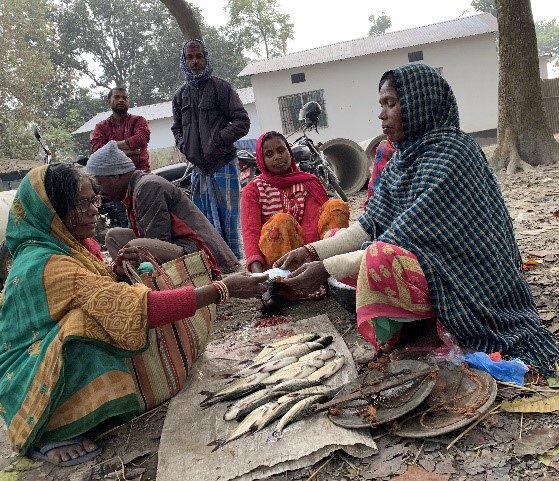
Something’s Fishy in Jahada
Community savings and loan groups are a good way for women in the programs we support around the world to get ahead. But how can they save money without having an income?
Prior to forming a women’s farming group called Sanathbaha at the start of the program, the 23 members were completely occupied with raising children and doing chores. They were dependent on the male heads of their families for the money necessary to run their households.
Local partner Group of Helping Hands (SAHAS) began interacting with the women. SAHAS learned that they were interested in receiving training and doing outside work of some kind to earn an income, but had never been offered the opportunity. The group expressed interest in fish farming so, after analyzing the situation, SAHAS proposed a two-day workshop on all things fish: integrated fish farming, feeding and harvesting fish, pond management and uses, and measuring the PH level of pond water.
Sanathbaha leased some public ponds from the local government for three years. SAHAS supplied 1,500 fingerlings and 717 pounds of fish food, plus a lot of support and monitoring. The women coordinated fish-care duties amongst themselves, worked hard, and were able to sell nearly 177 pounds of fish in the nearby market. Their first earnings ever!
At last, they were able to begin saving money together, making small loans to members, and accumulating funds for reinvestment. The group’s chair, Kalpana, said, “We plan to invest in one more pond and begin doing agricultural farming as soon as we can.”
She spoke for all the women, who were grateful to SAHAS “for reaching towards unreached communities and supporting them in achieving the skills they need to become independent.”
Nepal Jahada Program
Led by Mennonite Central Committee and Local Partner Group of Helping Hands (SAHAS)
